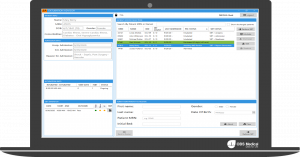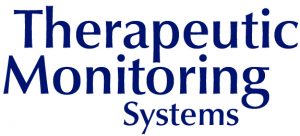Overview

OBS Medical and Therapeutic Monitoring Systems (TMS) have partnered to provide a suite of complimentary AI driven technologies to enhance patient care. Extubation Advisor (EA) is the first of such technologies available to market within the European Economic Area (EEA) and UK.
Extubation Advisor (EA) is the first clinical decision support tool developed to provide prediction of extubation outcomes and standardize the assessment of extubation readiness. EA combines a respiratory rate variability (RRV) derived predictive model of the risk of extubation failure called the WAVE score, the rapid shallow breathing index (RSBI), clinical impression of extubation failure risk, and a standardized extubation readiness checklist to generate an extubation report for clinical decision-making [5].
This combination of standardized SBT performance and reporting, along with optimal prediction of extubation outcomes aims to minimise extubation failure and enhance care [4]. The report generated by Extubation Advisor is used to drive clinical management when determining the best course of action for each patient being evaluated for extubation. Extubation Advisor can be run multiple times, providing updated SBT performance, prediction of extubation failure reports, means to mitigate extubation failure risk and clinical assessment, to be used when considering extubation.
Expeditious, safe extubation is vitally important in the care of Intensive Care Unit (ICU) patients as prolonged mechanical ventilation harms patients, and failed extubation (i.e. re-intubation within 48hrs) is associated with increased morbidity, mortality and costs [1-3].
- Standardized assessment of extubation readiness
- Enhanced prediction of extubation outcomes
- Individualized risk mitigation strategies
- Documentation of SBT performance
- Less unnecessary, harmful, prolonged mechanical ventilation
- Lower rate of re-intubation after extubation
- Streamlined extubation decision process
- Cost effective if reduction in extubation failure >0.6%.

Congratulations to Therapeutic Monitoring Systems Inc. who recently announced Health Canada approval of their first clinical decision support tool – Extubation Advisor (EA), a Class III Medical Device, via its commercial software manufacturing partner OBS Medical Ltd.
“Extubation decision-making is vital for recovery of critically ill patients, as both prolonged ventilation and extubation failure are harmful to patients and costly to hospitals. I believe EA can help expedite safe liberation from the ventilator, and I am grateful to all those who have helped us achieve this milestone.” Dr. Andrew JE Seely, MD PhD FRCSC; CEO and Founder, Therapeutic Monitoring Systems.
“What Dr. Seely and TMS are doing is revolutionary. It’s the future of medicine. This kind of technology will allow us to make more informed decisions that are precise and patient centered. This will allow for better outcomes and improved resource use. Honestly, this is groundbreaking research.” Dr. Kwadwo Kyeremanteng MD FRSPC; Chair, Department of Critical Care, Ottawa Hospital; Founder of Research Optimization Network; Founder of Solving Healthcare podcast.
References:
- Epstein SK, Ciubotaru RL, Wong JB. Effect of failed extubation on the outcome of mechanical ventilation. Chest. 1997 Jul;112(1):186-92. doi: 10.1378/chest.112.1.186. PMID: 9228375.
- Menon N et al.: Occurrence and complications of tracheal reintubation in critically ill adults. Respiratory Care 2012;57(10):1555-1563.
- Seymour CW et al.: The outcome of extubation failure in a community hospital intensive care unit: a cohort study. Critical Care 2004;8(5)R322-R327.
- Stephanie Godard, Christophe Herry, Paul Westergaard, et al., “Practice Variation in Spontaneous Breathing Trial Performance and Reporting,” Canadian Respiratory Journal, vol. 2016, Article ID 9848942, 10 pages, 2016.
- Seely et al.: Do heart and respiratory rate variability improve prediction of extubation outcomes in critically ill patients? Critical Care 2014 18:R65.
The health outcome implementation paper shows that the Extubation Advisor can accurately stratify high and low risk extubations.
The EA score was hidden from the clinician to avoid biasing their Extubation decision, but recorded in parallel to evaluate its accuracy. A 15% extubation failure rate was observed overall, but the failure rate of the ‘low risk’ patients as evaluated by the Extubation Advisor was only 10.9%; a potential Extubation failure reduction of ~4%. The patients judged to be high risk by the Extubation advisor ended up having a 20.6% Extubation failure rate, and with this high risk score, a clinician might have made a decision to postpone extubation.
Closing the logical loop in these two scenarios, this 4% reduction would lead to about $1,156 CAD per patient in savings, or about $2.89M in annual savings in a centre with 2,500 patients intubated annually.
Zheng K, Kumar S, Sarti AJ, Herry CL, Seely AJE, Thavorn K (2022).
Economic feasibility of a novel tool to assist extubation decision-making: an early health economic modeling. International Journal of Technology Assessment in Health Care, 38(1),
e66, 1–6 https://doi.org/10.1017/S0266462322000472


